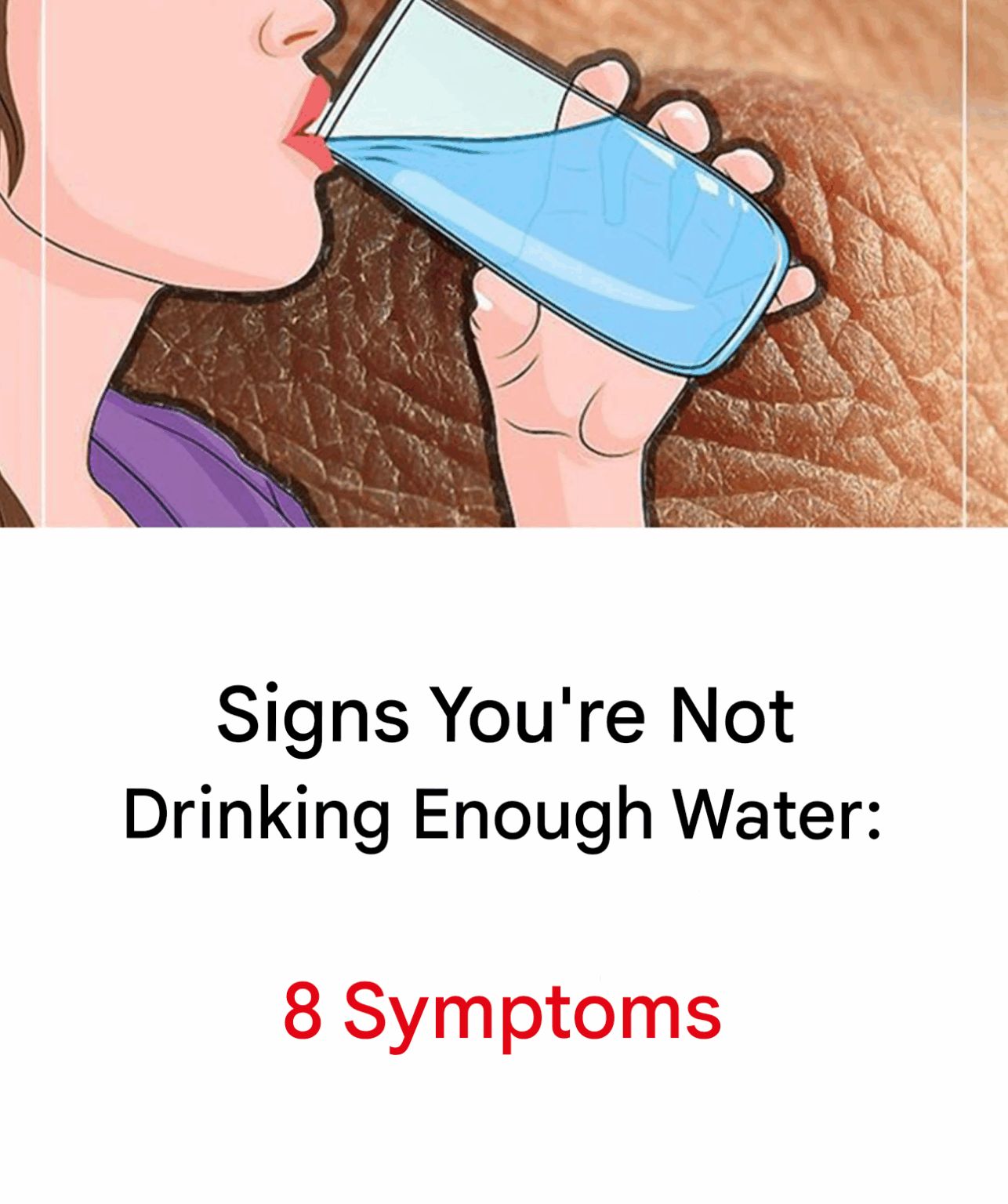What Happens to Your Body When You Don’t Drink Enough Water
We’ve all heard the advice: “Drink more water.” But let’s be honest—it’s easy to forget, especially when life gets busy. Skipping a glass here and there may not seem like a big deal, but chronic dehydration can take a serious toll on your body in ways you might not expect.
Water makes up about 60% of your body, and it’s essential for every system you have—from your brain to your muscles to your digestive tract. When you don’t drink enough, your body starts sending signals—and ignoring them can lead to a host of short- and long-term issues.
Here’s what really happens to your body when you’re not drinking enough water.
💧 1. You Feel Tired and Foggy
One of the first signs of dehydration is fatigue. Your body needs water to produce energy efficiently. Without enough of it, your blood volume drops, your heart works harder, and oxygen delivery to your brain slows down—leading to:
Low energy
Brain fog
Trouble concentrating
Headaches
Fact: Even mild dehydration (as little as 1–2% loss of body water) can impact mental performance and mood.
💧 2. Your Digestive System Slows Down
Water helps move food through your digestive tract and softens your stool. Without enough, you can quickly develop constipation, bloating, and acid reflux.
Saliva production also decreases, which can affect how well you digest food and fight off bacteria in the mouth.
Tip: Start your day with a glass of water before coffee to help “wake up” your digestive system.
💧 3. Your Skin Looks Dull and Dry
Skin is your body’s largest organ—and it thrives on hydration. When you’re dehydrated, your skin can become:
Dry
Tight
Less elastic
More prone to breakouts or flakiness
No amount of expensive skincare can replace the glow that comes from being well-hydrated on the inside.
💧 4. Your Joints May Ache
Water acts as a lubricant and cushion for your joints. Without enough fluid in your system, you may feel stiff, achy, or sore, especially if you’re active or aging.
Bonus: Staying hydrated may also reduce inflammation, helping your joints feel more flexible.
💧 5. You’re Hungrier (Even When You’re Not)
Your brain sometimes confuses thirst with hunger. If you find yourself reaching for snacks shortly after a meal, try drinking a glass of water first.
Dehydration can also slow your metabolism and make it harder to manage your weight.
💧 6. Your Heart Works Harder
Without adequate water, your blood thickens, your heart beats faster, and your blood pressure can rise. This puts extra strain on your cardiovascular system—especially if you’re already dealing with heart health issues.
Over time, chronic dehydration may contribute to higher risk of heart disease.
💧 7. Your Kidneys Suffer
Your kidneys filter waste from your blood and need plenty of water to do their job. If you’re dehydrated:
Your urine becomes darker and more concentrated
Waste builds up in your system
You increase your risk for kidney stones and urinary tract infections (UTIs)
Quick check: If your urine isn’t pale yellow, you probably need more water.
💧 8. You’re at Greater Risk for Overheating
Water regulates your body temperature. When you’re dehydrated, you can’t sweat efficiently—leading to overheating, muscle cramps, and in extreme cases, heat exhaustion or heat stroke.
This is especially dangerous during hot weather or intense exercise.
So… How Much Water Should You Drink?
The old “8 glasses a day” rule is a good starting point, but everyone’s needs are different. A better approach:
Men: About 3.7 liters (125 oz) per day from all fluids
Women: About 2.7 liters (91 oz) per day
